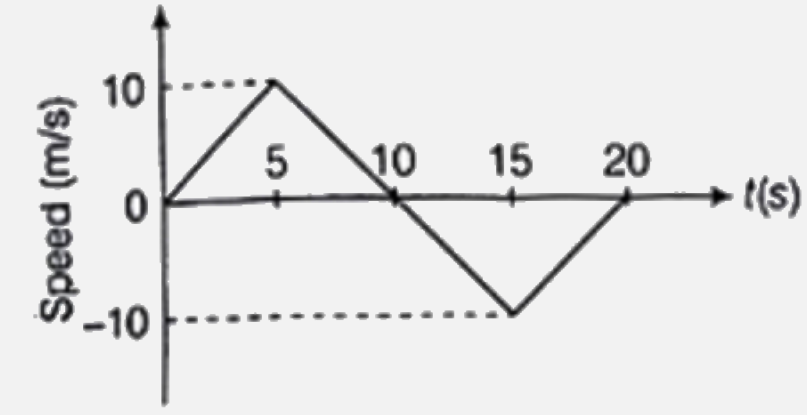Statement-I : Graph (1) represent one dimensional motion of a particle. While graph (2) can not represent 1-D motion of the particle. (here x is position and t is time)

Statement-II : Particle can have only one position at an instant.
Statement-I is true, Statement-II is true, Statement-II is correct explanation for Statement-I
Statement-I is true, Statement-II is true, Statement-II is NOT a correct explanation for Statement-I
Statement-I is true, Statement-II is false
Statement-I is false, Statement-II is true.
The correct Answer is:A
Step by step video, text & image solution for Statement-I : Graph (1) represent one dimensional motion of a particle. While graph (2) can not represent 1-D motion of the particle. (here x is position and t is time) Statement-II : Particle can have only one position at an instant. by Physics experts to help you in doubts & scoring excellent marks in Class 11 exams.
Topper's Solved these Questions
- BOOK - ALLENCHAPTER - KINEMATICSEXERCISE - Comprehension#13videos
KINEMATICS
- BOOK - ALLENCHAPTER - KINEMATICSEXERCISE - Comprehension#25videos
KINEMATICS
- BOOK - ALLENCHAPTER - KINEMATICSEXERCISE - EXERCISE-036videos
KINEMATICS
- BOOK - ALLENCHAPTER - ERROR AND MEASUREMENTEXERCISE - Part-2(Exercise-2)(B)22videos
ERROR AND MEASUREMENT
- BOOK - ALLENCHAPTER - KINEMATICS (MOTION ALONG A STRAIGHT LINE AND MOTION IN A PLANE)EXERCISE - BEGINNER S BOX-78videos
KINEMATICS (MOTION ALONG A STRAIGHT LINE AND MOTION IN A PLANE)
Similar Questions
Knowledge Check
- Question 1 - Select One or More
Which of the following graphs cannot represent one dimensional motion of a particle?
A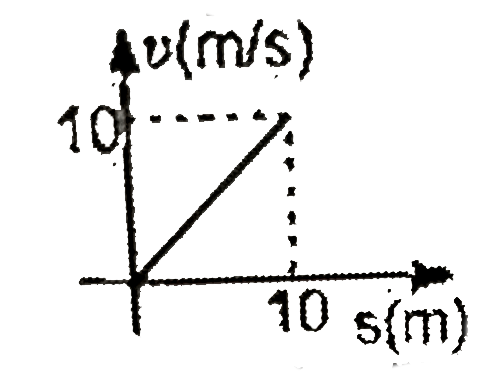 B
B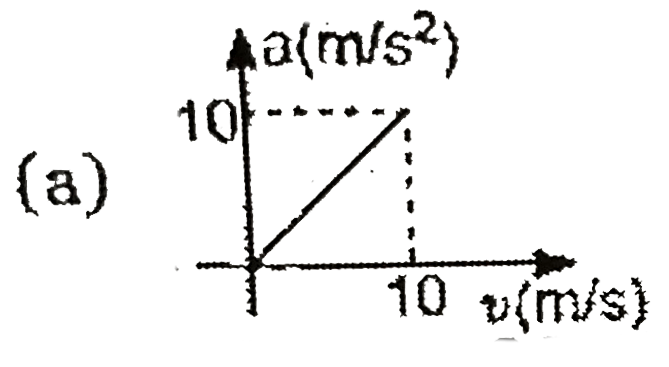 C
C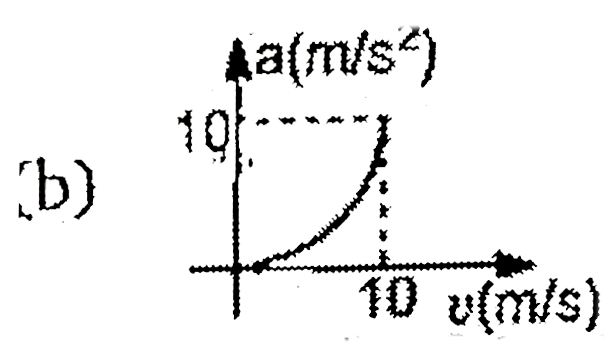 D
D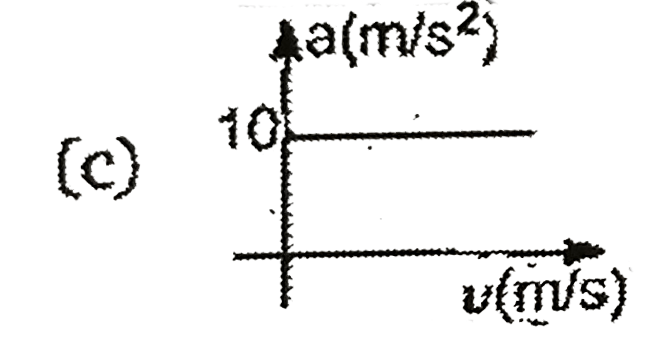
- Question 2 - Select One
In the one-dimensional motion of a particle, the relation between position x and time t is given by x2+2x=t (here x>0). Choose the correct statement.
AThe retardation of the particle is 14(x+1)3BThe uniform velocity of the particle is 1(x+1)3CBoth are correctDBoth are wrong - Question 3 - Select One
Which of the following graphs cannot possibly represent one dimensional motion of a particle?
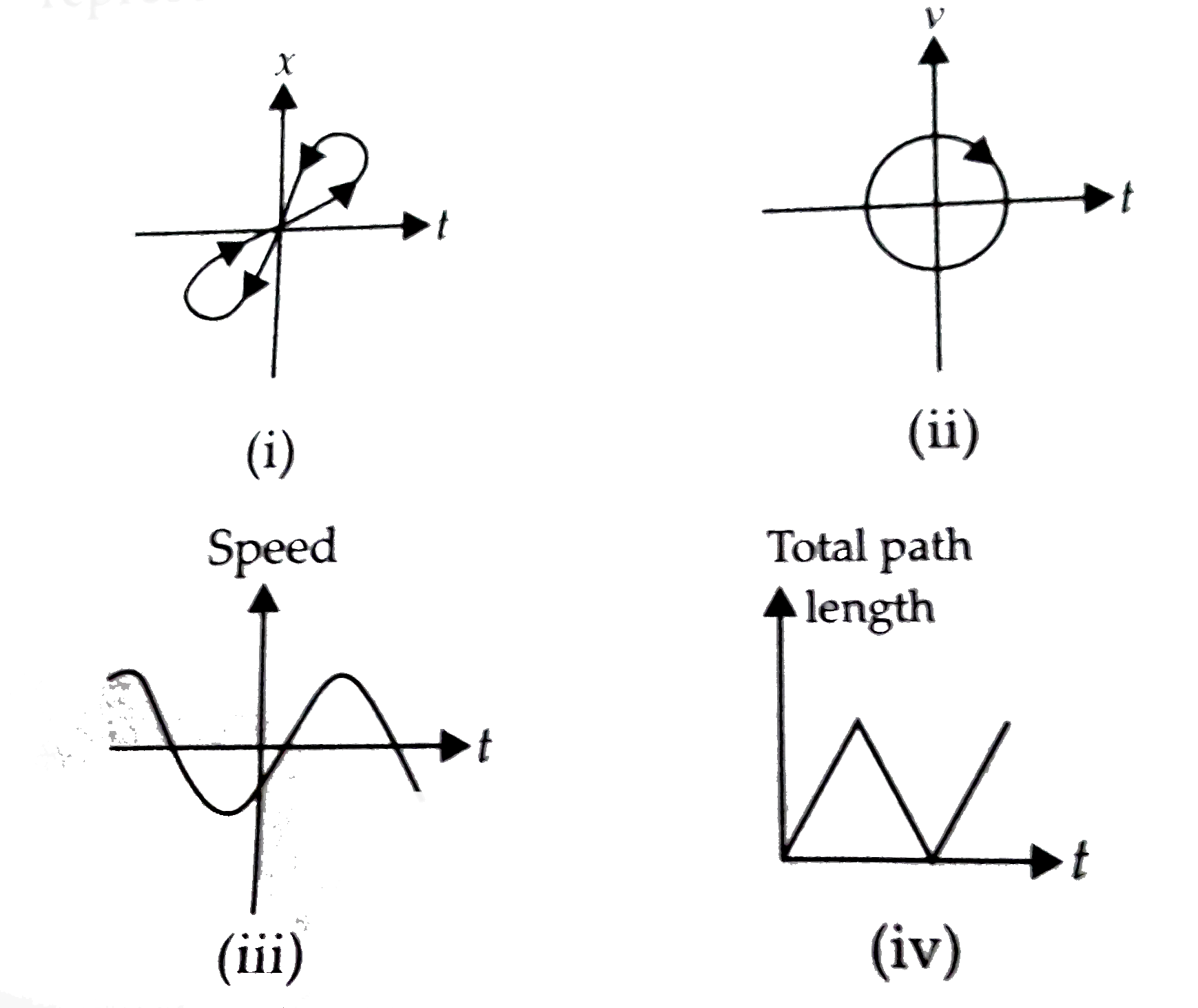 A(i) and (ii)B(ii) and (iii)C(i), (ii) and (iii)DAll four
A(i) and (ii)B(ii) and (iii)C(i), (ii) and (iii)DAll four
Which of the following graphs cannot possibly represent one dimensional motion of a particle.
 .View Solution
.View SolutionState with reasons why the graph in the adjacent figure cannot represent one-dimensional motion of a particle.
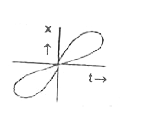 View Solution
View SolutionWhich of the following graphs represents the motion of a particle moving with constant velocity?
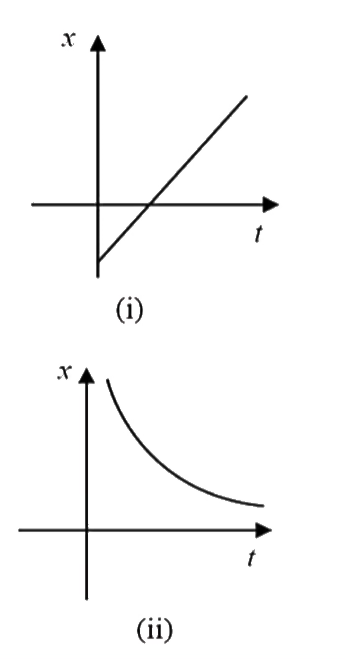
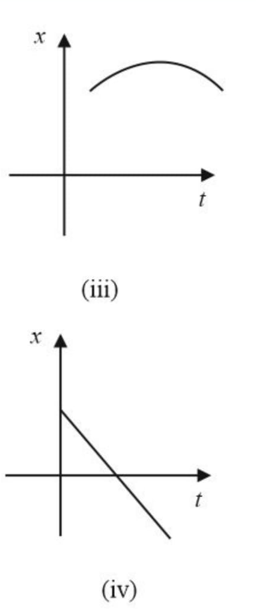 View Solution
View SolutionFigure gives the x-t plot of a particle is one dimensional motion. Give the signs of position, velocity and acceleration of the particle at t = 0.3s
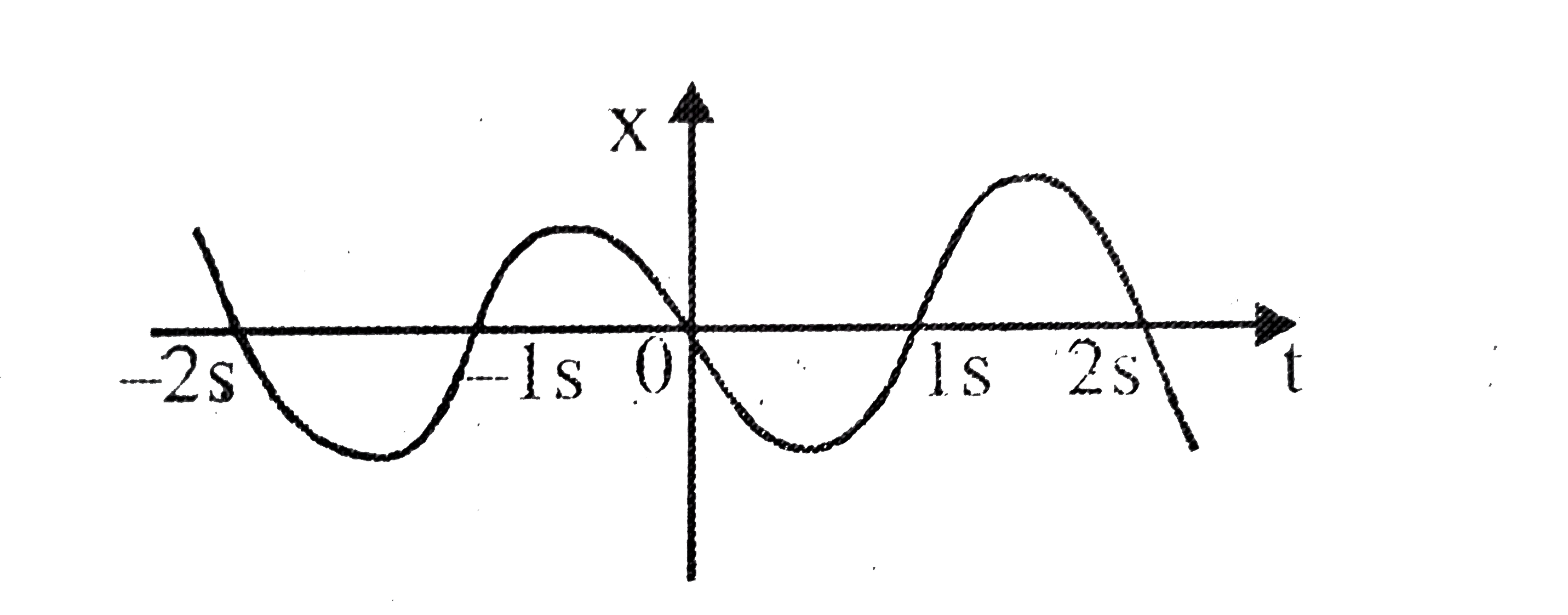 View Solution
View SolutionFigure shows the position the graph for a particle in one dimensional motion. Which of the graphs in fugure represent the variation in the velocity of the particle with time ?
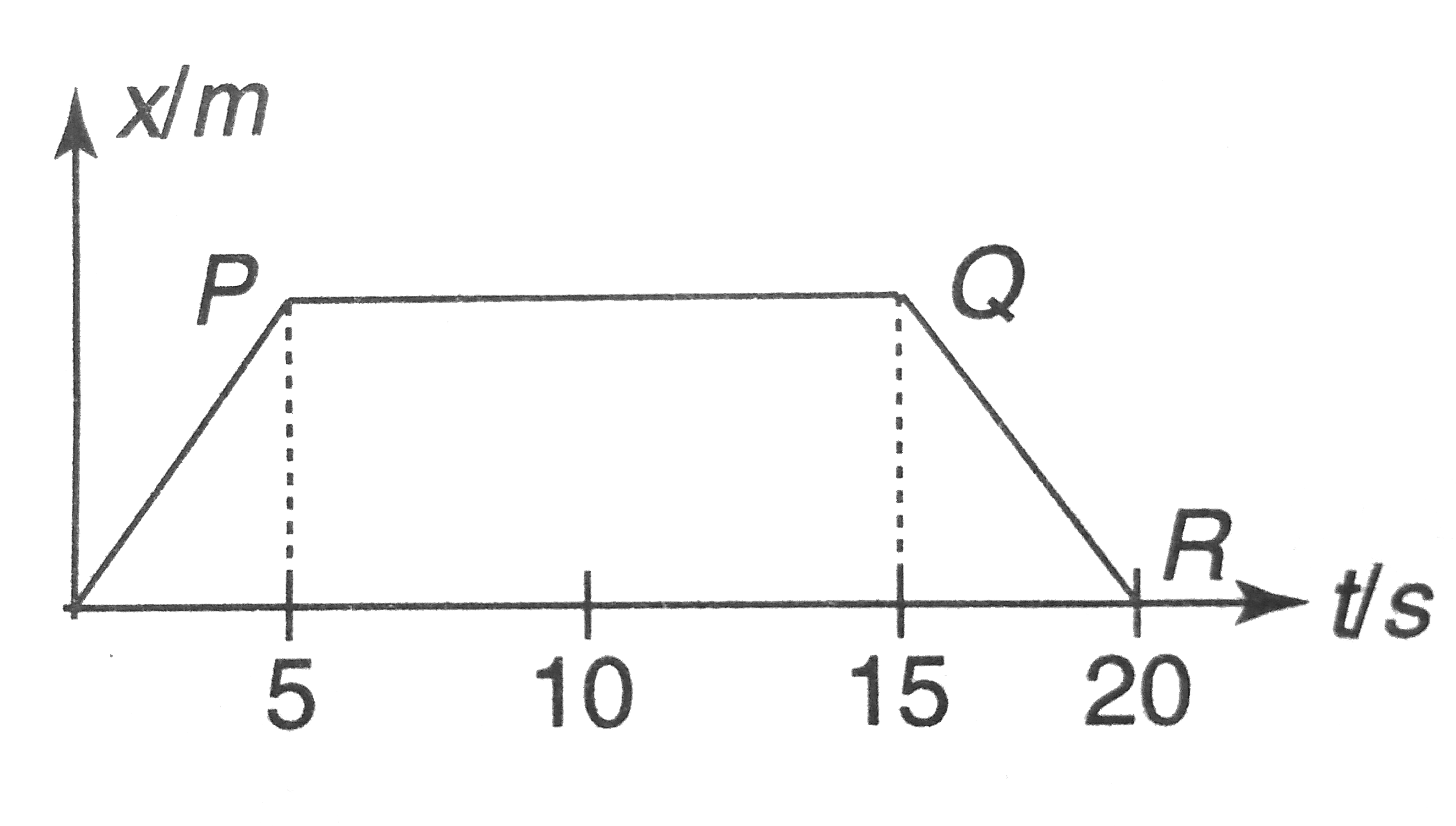 View Solution
View Solution


